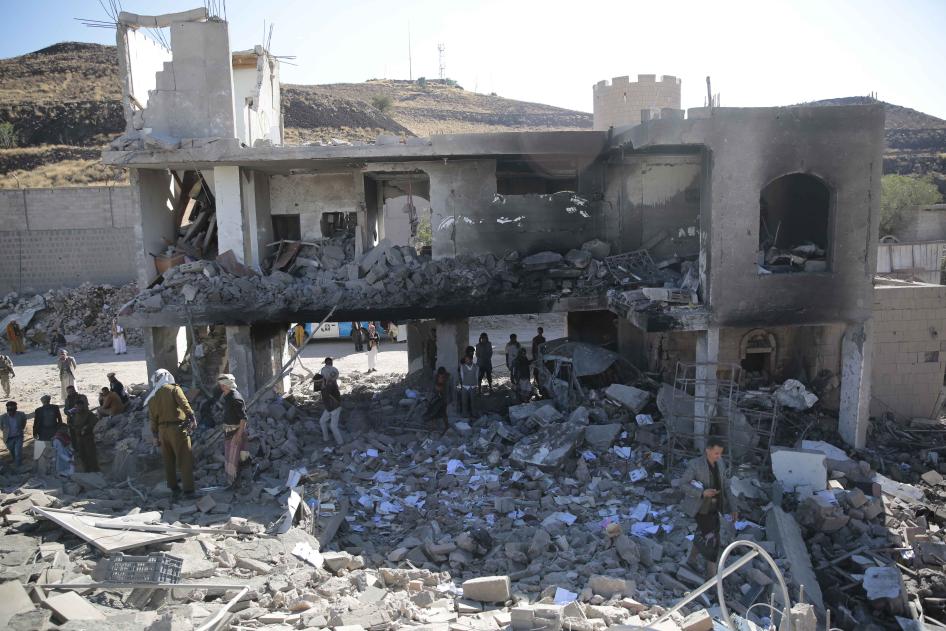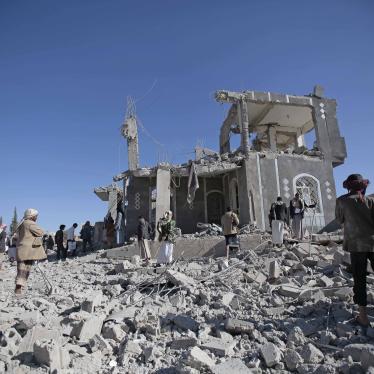While the dramatic escalation of fighting in Yemen since mid-January has renewed international attention, the day-to-day reality beyond the ballistic missiles and airstrikes rarely gets the same attention and scrutiny. Beyond the headlines, civilians in Yemen have been caught between hammer and anvil for years.
Civilians in Yemen are routinely subjected to injustices by all parties to the conflict, not just one side. For instance, while the Saudi and UAE-led coalition is responsible for a naval and air blockade on Yemen, and has a sordid record of unlawful attacks, targeting civilians and civilian infrastructure in areas held by the Houthi armed group, Houthi forces have also been committing serious abuses. The Houthis’ record of abuses and war crimes is long and growing, including holding people arbitrarily, forcibly disappearing them, and torture. The group also abuses religious minority groups, wrongfully convicts journalists and threatens to execute them, unlawfully shells internally displaced people, and forcibly displaces civilians. Houthi authorities have spread disinformation about the Covid-19 pandemic, subjecting civilians and health workers to risks. And the list goes on.
At the same time, Saudi Arabia and the UAE’s role in Yemen goes well beyond just airstrikes. Saudi Arabi’s recent decision to not renew work contracts for Yemeni professions could result in a mass forced return of Yemeni workers, a move that would devastate Yemen’s collapsing economy by cutting off at least two million Yemenis’ remittances sent to their families in Yemen.
Likewise, despite removing its ground forces from southern Yemen in late 2019, the UAE continues to support abusive local forces that have arbitrarily detained, forcibly disappeared, tortured, and abused dozens of people during security operations, including by transferring weapons to these forces.
The war in Yemen isn’t a football match where one gets to cheer for one side over the other. Behind the headlines about the escalation, there are human victims who have suffered these abuses long enough.
There is no magic bullet for solving Yemen’s problems, but there is no doubt that the path forward should include accountability and redress measures for all abuses, no matter whether they are committed by states, armed groups, or others.








